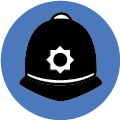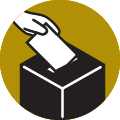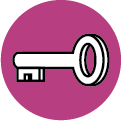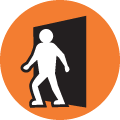By age


You may enter a bar at any age as long as you are with someone over the age of 18.
Ss.145 Licensing Act 2003
The police may confiscate alcohol from you if you are drinking in a public place or anywhere that you have entered unlawfully. They can also confiscate alcohol from anyone who intends to give you alcohol to drink in either of these places.
Confiscation of Alcohol (Young Persons) Act 1997
It is illegal for you to buy or attempt to buy alcohol until you are 18.
s.149 Licensing
Act 2003
Previously, it was an offence to sell liqueur confectionary to individuals under the age of 16. However, this law has been repealed, and now children under 16 are allowed to purchase liqueur confectionary.

You can baby-sit for a child at any age, although the parents may want to check whether it will be suitable for you to do so. Coram Children’s Legal Centre recommends 16 as the minimum age for baby-sitting.

You can have your body pierced at any age, although your parents may have to go with you and provide consent. Some Local Authorities and piercing parlors have their own rules and might set a minimum age and need parental consent so you should check these before you book an appointment.
It could be considered sexual assault to have a genital or female nipple piercing if you are under 18.

Your parents can change your name at any age without your consent, but you can seek a Prohibited Steps Order from the court if you do not agree. For information on how to so this use our Contact Form.
s.8 Children Act 1989
If you want to change your name, and you are under 16, you will need the consent of every person with parental responsibility for you. You can make an application to court if your parents do not consent.
ss.13 and 33(7) Children Act 1989.
For more information, see Changing your name.

Generally, if you are under 18 you cannot enter into contracts. Contracts are legally binding agreements where something valuable is exchanged. The law says that under this age you can make valid contracts for necessary things – for example, food or clothing, but not motorbikes, electrical equipment or mobile phone contracts.
s.3 Minors’ Contracts Act 1987

You can make a complaint at any age if you believe you are being treated differently, or being discriminated against on the basis of race, religion or belief, disability, sex and sexual orientation.
Equality Act 2010

You can see a U or PG category film at a cinema at any age without an adult, but it is the cinema manager’s choice whether to let you in or not.
You can buy or rent a U or PG category video, but it is the shopkeeper’s decision whether or not to let you do this.
ss.20 and 74 Licensing Act 2003

s.6 Data Protection Act 1998, as amended by s.18(1) Freedom of Information Act 2000
You can ask to see your health records and education records at any age, but disclosure may be refused if showing it might cause serious harm to your physical or mental health, or that of another person.
Data Protection Act 1998, Data Protection (Subject Access Modification) (Health) Order 2000, and Data Protection (Subject Access Modification) (Education) Order 2000
You can also see the information held by the Local Authority about you at any age unless seeing it would cause serious harm to your physical or mental health, or that of another person.
Data Protection (Subject Access Modification) (Social Work) Order 2000

You cannot be convicted of a criminal offence under the age of 10. However, If you have done something that would be considered a crime if you were over the age of 10, a child safety order can be made by the court.
s.31 Children Act 1989
If you are under 16, you can be the under a local child curfew scheme, banning you from public places (except when with an adult) between 9pm and 6am.
s.14 Crime and Disorder Act 1998

You can give evidence in a criminal investigation or trial at any age as long as you understand the questions being asked and can give clear answers.
s.53 Youth Justice and Criminal Evidence Act 1999
If you are under 14, you will give unsworn evidence, which means you will not have to give an oath first.
s.55 Youth Justice and Criminal Evidence Act 1999
If you are under the age of 17 or are the victim of a sexual offence, you will usually give your evidence through a video interview.
Part II s.19-30 Youth Justice and Criminal Evidence Act 1999
If you are under 17 or have special needs, you can give evidence through a third party or use communication aids.
ss.16-30 Youth Justice and Criminal Evidence Act 1999
You can give evidence in civil proceedings at any age. If the court thinks that you do not understand the nature of any oath, you can give unsworn evidence.
s.96 Children Act 1989
For more information, see Being a witness in court.

You can apply for legal aid at any age, although if you are starting an action in the civil courts or family courts you may need to take that action through a litigation friend.
If you are arrested and held in custody at the police station, you are entitled to receive the free services of the duty solicitor. If you are charged with a criminal offence and have to go to court, you are entitled to the free services of the duty court solicitor at the first hearing.
For more information, see Legal aid.

You can be sued at any age. However, you cannot be held responsible for debt that you owe until the age of 18.
You can sue someone if you are under 18 years old, but you will need a litigation friend to issue and conduct court proceedings on your behalf.

You can be made a ward of court until the age of 18.
s.41 Supreme Court Act 1981
For more information, see Wardship

You can give consent to surgical, medical (including contraceptive) or dental treatment at any age provided the doctor decides you fully understand what it involves.
Gillick v West Norfolk and Wisbech Area Health Authority [1985] 3 All ER 402.
Your parents cannot go against your decision to consent, but a court might decide for you you if it thinks the decision you are making is not in your best interests.
Re W (A Minor) (Medical Treatment: A Court’s Jurisdiction) [1992] 3 WLR 758.
The court can make a decision on your behalf if they feel that you’re not acting in your best interests.
Re W (A Minor) (Medical Treatment: A Court’s Jurisdiction) [1992] 3 WLR 758.
You have the right to seek advice and counselling at any age once you have the maturity to understand what that request fully means. However, your right to complete confidentiality could be restricted if you are at risk of significant harm.
Department of Health Guidance: ‘Confidentiality: NHS Code of Practice 2003’
For more information, see Healthcare and medical treatment.

The age at which you can open a bank or building society account varies according to the rules of the particular bank or building society, although most have special accounts for children and young people.
s.1(b) Minors’ Contracts Act 1987

If you are under 16 you need your parents’ consent to carry a donor card and your parents will need to agree to your organs being used after death.
For more information, see Healthcare and medical treatment.

You can choose your own religion at any age once you have the maturity to understand what that decision means. However, if you are under 18 and follow a religion that may be harmful to you, your parents could ask the court to intervene by making you a ward of court.

You can smoke cigarettes at any age, but you are not allowed to buy them until you are 18.
s.7 (1) Children and Young Persons Act 193 as amended by the Children and Young Persons (Sale of Tobacco etc) Order 2007
If you are caught smoking by a uniformed police officer or park keeper in any public place when under 16, he or she can take away your tobacco and cigarette papers.
s.7 Children and Young Persons Act 1933

You cannot use a sunbed under the age of 18 unless it is for medical treatment under the supervision or direction of a registered medical practitioner.
s.1 and 3 Sunbeds (Regulation) Act 2010

You may be able to swim for free at your local council run swimming pool if you are under the age of 16. Contact your local council to find out of this is offered.

If you travel abroad you will need your own passport. You must use the correct child restraint when travelling in a motor vehicle.
The Motor Vehicles (Wearing of Seat Belts) (Amendment) Regulations 2006 s.23 Road Traffic Act
You can be a pillion passenger (sitting behind the driver) on a motorbike at any age, provided your crash helmet fits properly and both feet reach the passenger foot rests.
1988 and Regulation 102 Road Vehicles (Construction & Use) Regulations 1986
You must not be a pillion passenger if the driver only has a provisional license.
s.16(6) Motor Vehicles (Driving Licences) Regulations 1999


The compulsory school age is 5.
s.8(2) Education Act 1996 and Education (Start of Compulsory School Age) Order 1998
This means that your parents must make sure that you are in full-time education at school or elsewhere, for example, at home.
s.7 Education Act 1996
For more information, see: When do I have to go to school?


You have full criminal responsibility for your actions and can be convicted of a criminal offence.


You can be trained to take part in dangerous performances as long as the local authority gives you a licence.
s.24 Children and Young Persons Act 1933

You can see a 12A category film at the cinema without an adult. You can also rent or buy a 12 category video.
ss.20 and 74 Licensing Act 2003

If you are arrested, you can be kept in police detention or in Local Authority accommodation.
For more information, see If you are arrested, Going to court and What can happen to me if I break the law?

If you are getting a new passport, it must be signed by you and not your parent.


If you are ‘looked after’ by a Local Authority, you can be locked up in a secure unit of a children’s home for up to 72 hours, or longer by court order. This may happen if you have a history of running away and you are likely to suffer harm because of this, or you are likely to hurt yourself or others if you are not in a secure unit.
s.25 Children Act 1989, Children (Secure Accommodation) Regulations 1991
For more information, see: Accommodation by Children’s Services.


You can get a part-time job involving ‘light work’, but there are strict rules.

Your parents can be granted a justices’ licence which will let you take part in public performances abroad. This can include singing, playing, performing, being exhibited for profit, taking part in a sport or working as a model.
s.25 Children and Young Persons Act 1933

It is your responsibility to make sure that you are wearing a seat belt in a car or mini bus if there is one fitted.
s.15 Road Traffic Act 1988


You can apply to the Royal Navy and the Royal Air Force at 15 years and 9 months, but you will not be able to serve until you are 16.

You can see a 15 category film at the cinema. You can also rent or buy a 15 category video.
ss.20 and 74 Licensing Act 2003

If you are convicted of a crime, other than homicide or a serious crime, and the offence is so serious that only a custodial sentence is appropriate, or you are a persistent offender (or you will not consent to a community order), you may be sentenced to a detention and training order for a maximum of two years.
s.100 Powers of Criminal Courts (Sentencing) Act 2000


You can buy aerosol paint.
s.54 Anti-social Behaviour Act 2003.

You can enter a bar on your own, but you can only buy non-alcoholic drinks. It is a criminal offence to buy, attempt to buy or drink alcohol in licensed premises.
ss.145, 149 and 150 Licensing Act 2003
You can drink beer, cider or wine with a meal if you are with a person over the age of 18.
s.149 Licensing Act 2003

You may join the Army, the Royal Navy, the Royal Air Force and the Royal Marines with the consent of your parents or guardian.
Regulation 9 Army Terms of Service Regulations 2007

You can change your name by deed poll without parental consent or the consent of the court.

You can hold a license to drive a moped. If you are disabled, you may also hold a licence to drive a car.
s.101 Road Traffic Act 1988

You can leave school on the last Friday of June if you are 16 by that date, or you will reach the age of 16 during the summer holidays before the beginning of the next school year.
s.8(3) Education Act 1996, Education (School Leaving Date) Orders 1997
However, although you are not necessarily required to attend School, you will have to remain in education, employment or training until the age of 18.
s.2 Learning and Skills Act 2000.
96. s.63A Employment Rights Act 1996 and Right to Time Off for Study or Training Regulations 2001
For more information, see When can I leave school?

You can work full-time if you have left school, but there are some restrictions on the work you can do. For example, you cannot work in a betting shop or in a bar during opening hours.
s.558 Education Act 1996
Your employer must pay you the national minimum wage. The national minimum wage changes every year, but you can find the current level here.
For more information, see Employment for young persons.

You can buy a National Lottery ticket.
National Lottery Regulations 1994

You can enter into a housing contract. A housing contract is enforceable and therefore you can be held liable for breach of a contract.
s.15 Law of Property Act 1925. 106. ss.175-178 and 188-191 Housing Act 1996
The Local Authority has a duty to house you if you are homeless, in need of help, or in priority need and you did not make yourself intentionally homeless.
Homelessness Code of Guidance for Local Authorities. July 2006. 108. s.20(3) Children Act 1989
For more information, see: Homelessness

You can usually leave home without the consent of your parents or anyone else with parental responsibility. However, there are certain circumstances where an application can be made to court for you to return.
s.1(3)(a) Children Act 1989
If you are or have been a child ‘looked after’ by the local authority, you will be given a personal advisor and a pathway plan will be created to give you with advice, help and support.
s.3 Children (Leaving Care) Act 2000

You can apply for legal aid. You will be assessed on your own means.

You can consent to surgical, medical or dental treatment, including the taking of blood samples (see also ‘At any age’). You can also choose your own doctor.
ss.8 and 21(2) Family Law Reform
Act 1969
If you are female, you can buy emergency contraception (the ‘morning after’ pill) over-the-counter in a pharmacy.
s.2 Prescription Only Medicines (Human Use) Amendment (No 3) Order 2000
You have to pay prescription charges, unless you are in full-time education, pregnant, receiving income support, on a low income or in certain other circumstances.
Regulation 7 National Health Service (Charges for Drugs and Appliances) Regulations 2000
You have to pay for a sight test and for glasses unless you are in full-time education.
Regulations 3 and 8 National Health Service (Optical Charges and Payments) Regulations 1997
For more information, see Healthcare.

You can buy Premium bonds.
s.4 Premium Savings Bonds Regulations 1972
You can open an Individual Savings Account (ISA).
s.12 Individual Savings Account regulations 1998

You can buy a pet.
s.11 Animal Welfare Act 2006

You can take part in public performances without a local authority licence.
s.37 Children and Young Persons Act 1963

You can consent to all sexual activity (heterosexual and homosexual) involving anyone aged 16 years and over.
ss.9 and 13 Sexual Offences Act 2003
For more information, see Age of consent.

You can get a National Insurance Number.
You may receive income support in certain circumstances, for example, if you are still in full-time education at school or college and are forced to live away from your parents.
S.124 Social Security Contributions and Benefits Act 1992 and Schedule 1B Income Support (General) Regulations 1987
You may also be able to obtain jobseeker’s allowance if you are registered for training but you are not receiving any, and you are also suffering severe hardship.
S.16 Jobseekers Act 1995
If you are an ‘eligible child’ or a ‘relevant child’ (you have been ‘looked after’ by the local authority for at least 13 weeks from the age of 14, whether or not you are still ‘looked after’ by the local authority), you are not allowed to claim income support, housing benefit or jobseeker’s allowance, but you can seek financial aid from the Local Authority.
S.6 Children (Leaving Care) Act 2000
You may be assessed to pay child support if you are an absent parent.
s5 Child Support (Maintenance Calculation and Special Cases) Regulations 2000

You can apply for your own passport without parental consent.


You can join the Royal Navy or the Royal Marines as an officer with parental consent at 17, the Royal Air Force at 17 years and six months, and the Army at 17 years and nine months.
You can join the Royal Marines Reserve and the Territorial Army with parental consent.

You can donate blood without parental consent, if a qualified health professional thinks that you have sufficient knowledge and understanding of what is involved.
Part 3 of the Blood Safety and Quality Regulations 2005

The Local Authority can no longer apply for a care order for you.
s.31(3) Children Act 1989

You can hold a licence to drive a car, small goods vehicle and an agricultural tractor on the road, but not a medium or heavy goods vehicle, or a vehicle that carries more than eight passengers.
s.101 Road Traffic Act 1988

You can apply to certain fire brigades at 17 years and 10 months old.

You can be given a reprimand or warning without an ‘appropriate adult’ being present.
s.65 Crime and Disorder Act 1998


You cannot be adopted.
ss.56-64 Adoption and Children Act 2002
If you have been adopted, you can contact the adoption agency responsible for your adoption for more information, for example, a copy of your original birth certificate.
s.80 Adoption and Children Act 2002
If you have been adopted, you can apply to have your name and address put on the Adoption Contact Register.
s.21 Adoption and Children Act 2002
For more information, see Adoption – finding birth parents.

You can buy and drink alcohol in a bar. You may be asked to show ID to prove that you are 18 years or older.
s.146 Licensing Act 2003
You can apply for a licence to sell alcohol.
s.111 Licensing Act 2003

You can join the armed forces and all volunteer reserves (part-time armed forces) without parental consent.
s.328 Armed Forces Act 2006

You have complete contractual capacity, this means you can make binding contracts in your own right. You can own land, buy a house or flat, hold a tenancy or apply for a mortgage. You can become entitled to any property that has been held in trust for you.
s.35 Finance Act 2005.
You can act as an executor or administrator of a deceased person’s estate.
s.1(a) Minors’ Contracts Act 1987
You can sell an item at a pawnshop.
s.114(2) Consumer Credit Act 1974

You can hold a licence to drive a medium-sized goods vehicle (maximum 7.5 tonnes).
s.101 Road Traffic Act 1988

It is compulsory for young people to be in education or training until the age of 18, but that doesn’t mean you have to stay in school if it isn’t right for you. There are plenty of different routes to go down when you turn 16, whether that’s going to college to do A Levels or a vocational course like a T Level, or starting to earn while learning as an apprentice.

Your employer must pay you the national minimum wage set for 18-year-olds. This changes annually – you can find out what the current minimum wage is on HM Revenue and Customs website.
For more information, see Employment for young persons.

You can view an 18 category film at the cinema.
ss.20 and 74 Licensing Act 2003
You can buy or rent a video given a certificate for viewing by adults only.
s.7 Video Recordings Act 1984

You can join the fire service at 18 years old.
Regulation 5 of the Fire Services (Appointments and Promotion) Regulations 1978 as revoked by the Fire Services (Appointments and Promotion)(England and Wales) Regulations 2004, which lapsed on the repeal of the Fire Services Act 2004

You can buy fireworks.
Regulation 6 Fireworks (Safety) Regulations 1997

You can enter a betting shop and place a bet. You can also work in one. You may enter premises in which gaming takes place.
ss.46,47,51 Gambling Act 2005

You can make an application for a gender change certificate if you have been living as the other gender or have changed gender.
s.1 Gender Recognition Act 2004

You can leave home without parental consent.

Criminal charges against you will be dealt with in the adult courts.
s.46(1) Children and Young Persons Act 1933 and s.68 Criminal Justice Act 1991
You can appear before an adult court.
You can serve on a jury.
s.1 Juries Act 1974
You can be sued and you can sue in your own right.
You can make a will.
s.7 Wills Act 1837
You can make an application for legal aid in your own right (see also ‘At any age’).

You can get married without parental consent.
s.1 Family Law (Reform Act) 1968
You can register a civil partnership without parental consent.
s.4 Civil Partnership Act 2004

You have to pay for dental treatment unless you are still in full- time education, pregnant or certain other circumstances apply.
Schedule 5 National Health Service (dental Charges) Regulations 2005

You can agree to pay a loan that was given when you were under 18 years old.
s.1(b) Minors’ Contracts Act 1987
You can open a bank account or get a credit card without your parents’ signature. You are also able to take out a personal loan.

You can apply to join and can be appointed to the police service.
The Police (Minimum Age for Appointment) Regulations 2006

You can vote in general and local elections.
s.1 Representation of the People Act 2000
You can become a Member of Parliament.
s.17 Electoral Administration Act 2006
You can become a local councilor or a mayor.
s.79(1) Local Government Act 1972 as substituted by s.17 Electoral Administration Act 2006

You can take part in an exhibition or performance of hypnotism.
s.3 Hypnotism Act 1952

You can buy cigarettes, tobacco and cigarette papers.
s.7 Children and Young Persons Act 1933. As amended by the Children and Young Persons (Sale of Tobacco etc) Order 2007

You can get a tattoo.
s.1 Tattooing of Minors Act 1969

You can buy or hire an air weapon or ammunition for an air weapon.
s.22(1) Firearms Act 1968 as amended by the Violent Crime Reduction Act 2006
You can have an air weapon under the age of 18, as long as you are supervised by someone aged 21 or over, or you are using it at a rifle club or shooting gallery.
ss.22 and 23 Firearms Act 1968
as amended by the Violent Crime Reduction Act 2006


You have to pay for dental treatment even if you are in full-time education, but you can apply to be exempt if you have a low income.
The National Health Service (Dental Charges) Regulations 2005


You can adopt a child.
ss.50 and 51 Adoption and Children Act 2002

You can supervise a learner driver if you have held, and still hold, a full licence for that type of motor car for at least three years.
You can apply for a provisional licence to drive a large passenger vehicle or heavy goods vehicle.
s.101 Road Traffic Act 1988

Previously, care leavers received support from a Personal Adviser until age 21, or up to 25 if in education or training. Now, local authorities must offer PA support to all care leavers up to age 25, regardless of their education or training status.
This information is correct at the time of writing, February 11, 2025. The law in this area is subject to change.
Coram Children’s Legal Centre cannot be held responsible if changes to the law outdate this publication. Individuals may print or photocopy information in CCLC publications for their personal use.
Professionals, organisations and institutions must obtain permission from the CCLC to print or photocopy our publications in full or in part.
This information is correct at the time of writing, February 11, 2025. The law in this area is subject to change.
Coram Children’s Legal Centre cannot be held responsible if changes to the law outdate this publication. Individuals may print or photocopy information in CCLC publications for their personal use.
Professionals, organisations and institutions must obtain permission from the CCLC to print or photocopy our publications in full or in part.